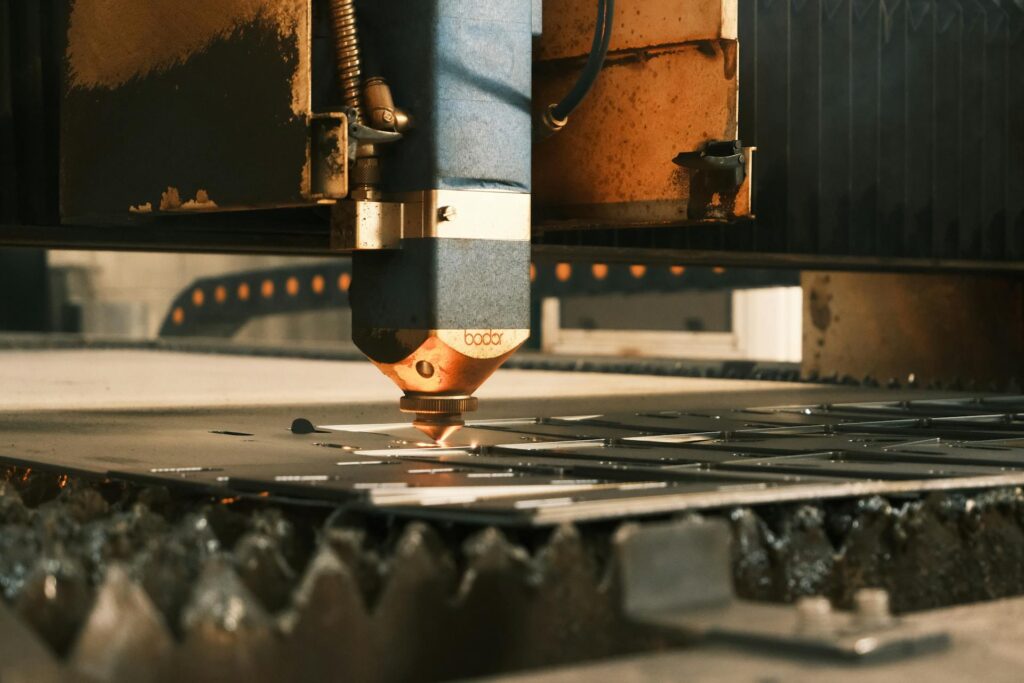We’re currently experiencing a new industrial revolution that will make smart factories essential to success in the manufacturing industry. Industry 4.0 improves efficiency and decision-making through technologies like automation, artificial intelligence (AI), the Internet of Things (IoT), and advanced robotics.
Staying ahead of competitors requires more than adopting these technologies, though. You will also need to find skilled manufacturing professionals who know how to work in smart factories and adapt to evolving needs.
Let’s take a closer look at smart factories to see how Industry 4.0 technology will influence the industry’s future.
Why Smart Factories Are Growing
Smart factories are becoming more popular because they take advantage of emerging technologies that collect and analyze data to improve efficiency, productivity, and decision-making throughout the manufacturing and delivery processes.
Automation and AI
According to a recent study, AI and automation could boost the productivity of the automotive manufacturing sector by 30-32%. These technologies offer several benefits that make factories more efficient than ever.
For example, generative AI can run scenarios that forecast when machinery will need maintenance. That means professionals can address potential mechanical failures before they happen, which prevents downtime and keeps machines working close to full capacity.
Thanks to automation, maintenance crews don’t even need to ask AI to perform preventative maintenance scenarios. The software can do it independently and alert them when they need to complete a task. In the meantime, employees can focus on other aspects of their jobs.
IoT Connectivity
IoT connectivity could also make the above scenario more accurate. The Internet of Things uses sensors to collect data from different devices, including machines used in factories. By collecting data in real time, sensors can give AI real-world performance information that helps determine when machines would benefit from maintenance.
Of course, IoT connectivity can do more than avoid mechanical downtime. Smart factories that take advantage of IoT technology can also:
- Monitor energy consumption, revealing opportunities for companies to save money on electricity, natural gas, and other types of energy
- Improve workplace safety by alerting workers to potential hazards
- Maintain accurate records of supply levels and locations
- Track items as they move from suppliers to the factory and to distribution pipelines
Robotics Integration
While some people worry that AI and advanced robotics will replace human workers, recent studies show that emerging technologies will more likely take a complementary, human-centered approach to changing workplaces. For example, IoT & robotics could make human employees much more precise, an increasingly critical goal as electronic devices become more compact.
Robotics integration could also help smart factories:
- Prevent workplace injuries by assigning dangerous tasks to robots
- Perform repetitive tasks, which would help prevent repetitive strain injuries
- Automate complex tasks to help ensure accuracy
- Improve productivity by working faster without getting tired
The Hiring Challenge: Finding the Right Talent
For the foreseeable future, Industry 4.0 technologies will rely on human employees who can oversee processes and make important decisions. The shift toward smart factories, however, will influence the skill sets companies look for when hiring employees.
Some of the most essential positions manufacturers need to fill include:
- Engineers
- Data analysts
- Automation specialists
Engineers need to know how to perform preventative maintenance and fix machines when they break down. Factories that don’t have these professionals on site might need to wait days or weeks before a third-party mechanic can repair or replace damaged equipment.
Data analysts pay close attention to information collected by IoT sensors. You need them to recognize emerging problems so you can have mechanics perform maintenance tasks before failures happen. Data analysts should also know how to review information and find opportunities for improving efficiency on the production floor.
Automation specialists typically have backgrounds in information technology (IT). They use their experience in software and system design to create, review, and test automation procedures. Filling this role often requires knowledge about diverse subjects like software development, database installation, hardware configuration, and quality assurance testing.
Finding Talent for Industry 4.0 Jobs
As demand for manufacturing talent with Industry 4.0 experience increases, companies will find it harder to fill roles. MRINetwork can solve this problem for you by tapping into its existing network of potential job candidates. With offices worldwide, we can help you find people with the technical expertise and adaptability required for Industry 4.0’s rapidly evolving landscape.
Partner With MRINetwork to Hire Top Talent
Smart factories are the future, but you can only benefit from these emerging technologies with a workforce that knows how to use them.
Partner with MRINetwork to find top-tier talent capable of driving smart factory innovations forward. You can start by finding an MRINetwork office in your region. Reach out to speak with one of our manufacturing recruitment experts. We’ll make it easy for you to hire skilled professionals who can help your company thrive.

Connect with MRINetwork